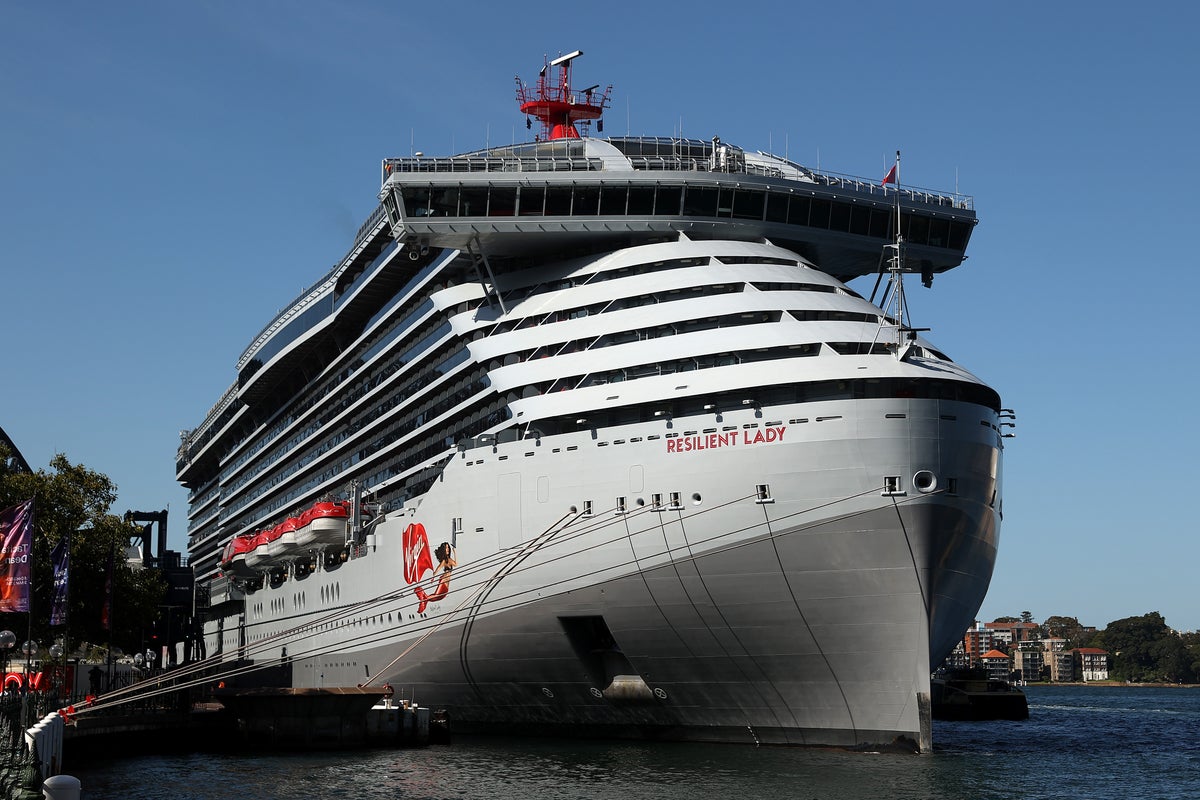In the nearly three years since the US Supreme Court overturned the national right to abortion, grassroots abortion funds and advocates have facilitated care for many thousands of patients living in states where abortion is banned, helping them find providers in other parts of the country, organize their travel, and pay some or all of the costs. That’s what Alabama advocates were expecting to do when that state’s near-total abortion ban took effect the day Roe v. Wade fell.
Instead, these advocates found themselves embroiled in an epic legal battle with Alabama’s attorney general, who threatened to use a criminal conspiracy statute from 1896 to prosecute anyone who helped pregnant patients obtain an abortion in another state—charges potentially punishable by decades in prison.
Now, in a decision that could have major implications for states’ efforts to regulate abortion help and helpers in the post-Roe era, a federal judge in Montgomery, Alabama, has ruled that Attorney General Steve Marshall’s threats to prosecute abortion advocates violate fundamental protections for free speech and the right to travel.
“Alabama’s criminal jurisdiction does not reach beyond its borders, and it cannot punish what its residents do lawfully in another State,” US District Judge Myron H. Thompson declared in a 131-page ruling issued Monday, adding: “The Attorney General cannot prosecute those who assist people in Alabama to travel out of state to obtain a lawful abortion.”
“It is one thing for Alabama to outlaw by statute what happens in its own backyard,” Thompson wrote. “It is another thing for the state to enforce its values and laws, as chosen by the attorney general, outside its boundaries by punishing its citizens and others who help individuals travel to another state to engage in conduct that is lawful there but the attorney general finds to be contrary to Alabama’s values and laws.”
“It is one thing for Alabama to outlaw by statute what happens in its own backyard. It is another thing for the state to enforce its values and laws, as chosen by the attorney general, outside its boundaries.”
The ruling was immediately hailed by abortion rights advocates. “We won! Our abortion fund is reopened!” Kelsea McClain, health care access director of Alabama’s Yellowhammer Fund, texted in reaction to the ruling Monday evening. “Immediately! We’ve already funded our first abortion!”
A request to Marshall’s office for comment was not immediately answered.
The case consists of lawsuits by Yellowhammer—the state’s only abortion fund—and a trio of former abortion providers, including the West Alabama Women’s Center (now WAWC Healthcare) in Tuscaloosa and Dr. Yashica Robinson, an OB-GYN in Huntsville. Before the Dobbs decision, Yellowhammer and the providers worked together closely to help patients throughout Alabama get abortion care; indeed, for a couple of years before Roe fell, Yellowhammer owned WAWC.
Even when abortion was still legal in Alabama, Yellowhammer and providers often sent patients out of state to avoid restrictions like Alabama’s 48-hour waiting period or those surrounding later-term abortions. In the months leading up to the Supreme Court decision, as it became clear Roe was doomed, advocates began planning to get many more Alabama patients to clinics in states where abortion would remain legal in the post-Roe era. “We were like, we’re okay. We can figure that out. It’ll be fine,” Yellowhammer’s executive director, Jenice Fountain, recently told Mother Jones.
But the day the Dobbs decision was handed down in June 2022, and Alabama’s trigger law, the Human Life Protection Act that banned virtually all abortions, went into effect, a Democratic state lawmaker from Tuscaloosa tweeted a warning: “helping someone either get or even plan to get an abortion in another state is a Felony as well.” WAWC’s director, Robin Marty, says she got a phone call that day alerting her to the threat. “They’re going to come after you for criminal conspiracy, ” she recalled being told. “If you try to get those patients somewhere else, they’re going to come after you.”
The day the Dobbs decision was handed down, and Alabama’s abortion ban took effect, a state lawmaker tweeted a warning: “helping someone either get or even plan to get an abortion in another state is a Felony as well.”
Over the following months, Marshall—who has been attorney general since 2017—repeatedly expressed the view that the state’s conspiracy law could be used to bring charges against groups and individuals who helped patients get abortions out of state. In one interview with conservative talk show host Jeff Poor, Marshall singled out organizations in Tuscaloosa, where Yellowhammer and WAWC were based.
Marshall has never actually charged an abortion helper under the Alabama conspiracy law—but he didn’t have to. Almost immediately, Yellowhammer stopped paying for patients’ out-of-state abortions or offering other direct abortion support, instead focusing on a wide range of non-abortion help, from free emergency contraception to diapers. WAWC—which is now a full-spectrum women’s health clinic—and other providers stopped giving referrals and other specific information about out-of-state abortion care.
Yellowhammer and the providers finally filed suit in July 2023, asking the court to block Marshall from using the criminal conspiracy law against them. Meanwhile, the advocates continued to refrain from providing abortion-related assistance. “The attorney general chilled so much help from all sorts of people, not just Yellowhammer Fund,” says Jamila Johnson, senior counsel with the Lawyering Project, one of the attorneys in the case.
Alabama has long had a reputation for pushing the legal envelope when it comes to reproductive rights—including laws and court decisions enshrining fetal personhood and declaring frozen IVF embryos to be “extrauterine children.” At the time of its passage in 2019, its Human Rights Protection Act—blocked while Roe was the law of the land—was the most restrictive abortion law enacted in the US since the 1970s.
Marshall’s threats against the abortion helpers were especially alarming to reproductive justice activists because they were so broad. Theoretically, Alabama’s criminal conspiracy law could apply to anyone in the state who helps someone do something in another state that would be a crime in Alabama, even if that conduct is legal in that other state.
Indeed, Judge Thompson wrote in Monday’s decision that, according to Marshall’s logic, “the Alabama Attorney General would have within his reach the authority to prosecute Alabamians planning a Las Vegas bachelor party, complete with casinos and gambling, since casino-style gambling is outlawed in Alabama.” The judge added: “As the adage goes, be careful what you pray for.”
Thompson also ruled that the advocates’ support for people seeking abortions was a form of speech. “The court finds that Yellowhammer Fund’s act of pledging and providing funds on behalf of pregnant Alabamians who seek a legal abortion outside Alabama is expressive conduct, and, therefore, subject to First Amendment protection.”
Monday’s outcome was not unexpected. In a 98-page opinion last May, Thompson—appointed to the bench by President Jimmy Carter—rejected Marshall’s motion to have the case dismissed, saying the attorney general’s threat to prosecute abortion advocates “contravenes history, precedent, and common sense.”
The Alabama case highlights frustration among anti-abortion lawmakers and activists that even in states with total or near-total abortion bans, patients have continued to access abortion care. Indeed, in the two years following the end of Roe, the total number of abortions increased slightly nationwide compared to the pre-Dobbs period. Abortion funds provided financial support to almost 103,000 patients in just the first year after Dobbs, the National Network of Abortion Funds has reported.
Alabama isn’t the only state to target abortion helpers. In Texas, lawmakers have tried to stop out-of-state abortion travel by empowering private citizens—bounty hunters—to sue anyone who aids or abets an abortion for thousands of dollars. In Idaho and Tennessee, lawmakers have passed so-called “abortion trafficking” laws targeting people who help pregnant teenagers leave the state—laws Yellowhammer’s attorneys are also challenging in court. Louisiana has charged a New York doctor for providing telehealth abortion services and abortion pills through the mail, while a Texas judge has ordered the same provider to pay more than $100,000 in fines.
“What we saw in Alabama was something we hadn’t seen in other states, which was an immediate effort to get on the airwaves and tell people that the helpers would be prosecuted,” Johnson told Mother Jones. “In those other states, legislators passed a law, right? But in Alabama, no legislature got together and said, ‘This is what we’re going to do.’ Instead, the attorney general said, we are going to prosecute [abortion helpers] just on his own enforcement authority.”
Johnson said that Thompson’s decision could resonate in ongoing legal challenges to the Tennessee and Idaho abortion travel bans. “While the [Alabama] decision is not precedent in those jurisdictions,” she said, “the reasoning is sound and could be indicative of how other jurisdictions may think about some of these issues in the future.”















